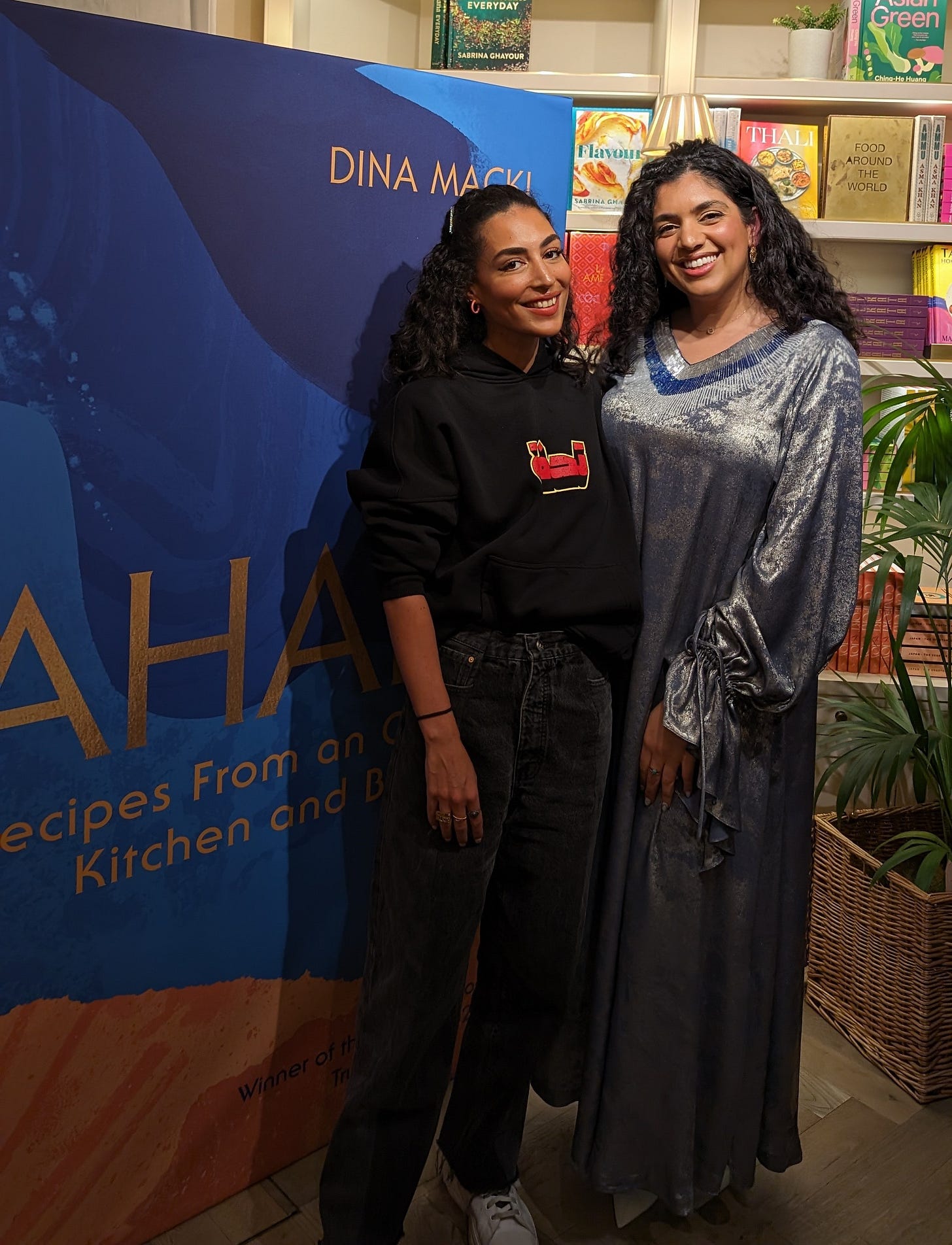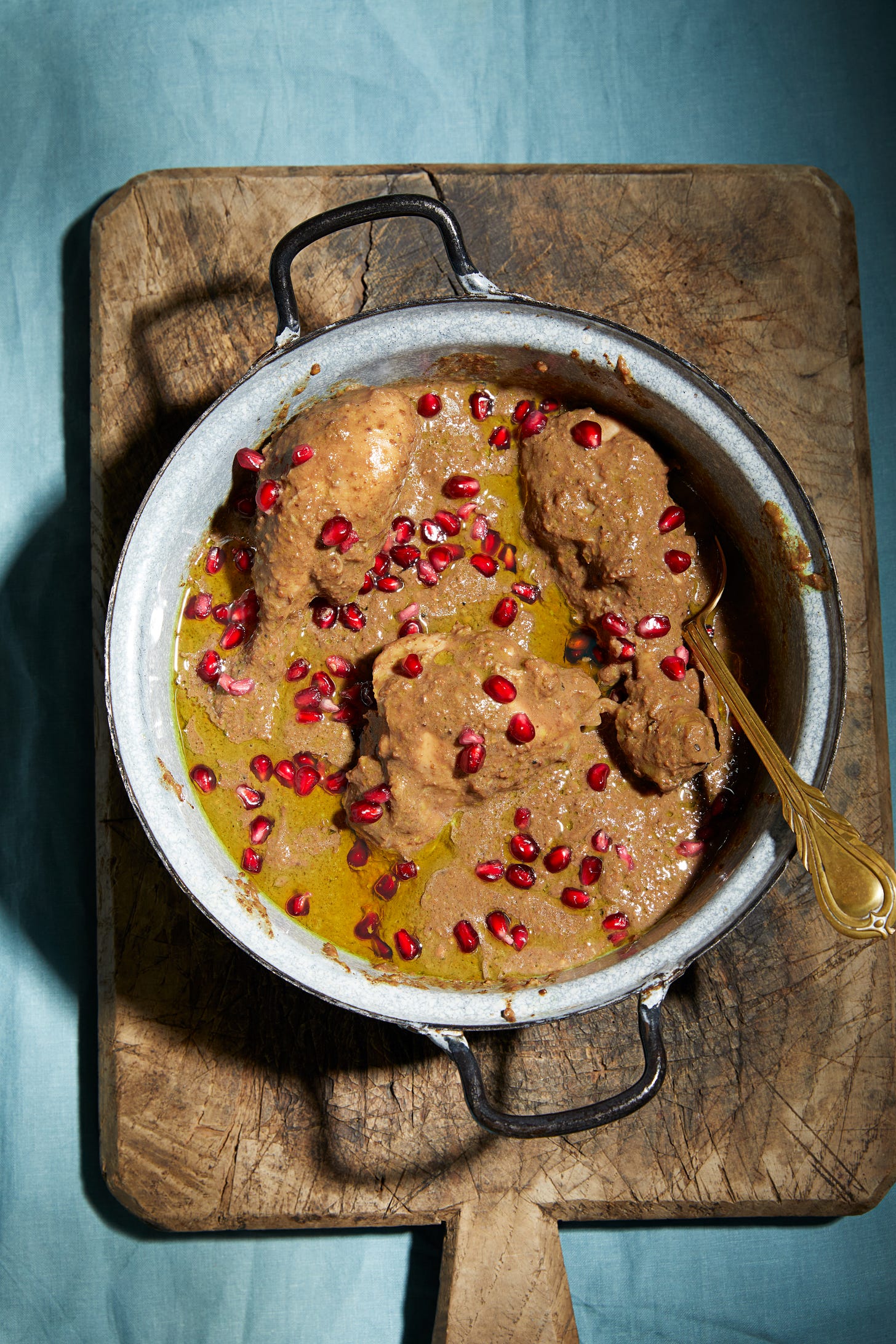Connecting with our roots via the kitchen
Dina Macki with an exclusive recipe from her bestselling cookbook, BAHARI
Writing the first-ever Omani cookbook by an Omani author is a big responsibility, although when I spoke with Dina Macki - the Omani-Zanzibari food developer, presenter, writer and best-selling author of the recently released cookbook: Bahari: Recipes from an Omani Kitchen and Beyond - for a profile in Harpers Bazaar Arabia, she teased, with her customary sense of humour, that that may well be an accolade many aunties out there would want to dispute.
I’ve known Dina for a number of years now (maybe 10!?) and I’ve so loved seeing her journey over the years, and the way she has used food to reconcile her own third-culture identity. As a third-culture kid myself, one who is *EXTREMELY USELESS* in the kitchen, as my friends will vouch for, I loved chatting with Dina about her book and the process of putting it together and how, especially for those of us in the diaspora, food is often one of the easiest ways for us to access and connect with our cultures.
One of the things that most struck me from our chat was that it was her insider/outsider status that facilitated the book’s existence, and even made her keen to create something like it in the first place.
“I’m so far removed from my culture and from the place that I live in, that I was the perfect person to write about this,” she told me. “If I look at my Omani friends, none of them are interested in their local food and rely on me to feed them. I’m like, ‘I can’t be the last person in our generation to preserve every recipe!’”
What’s more, it’s what allowed locals, who are often very protective of their recipes, to share them with her as she travelled around the country in search of culinary techniques and cuisines. “Everyone is very tribal in Oman, so, if an Omani who had grown up there decided to do a cookbook and were to travel around the country, either those tribes would not let them in, or they would not have given them the proper recipes,” she explained.
Indeed, those of us in the diaspora can often feel both and neither but actually, as I was reminded once again when speaking with Dina, it’s a beautiful strength, affording us a birds eye view and a perspective we may otherwise never have had the opportunity to have.
Have a read of my profile on Dina here, and keep reading for an exclusive recipe from the book, which Dina kindly agreed to share with paid subscribers of The Greater Conversation.
I’ll let her explain in her own words why she has picked Fesenjoon, a Pomegranate, Chicken and Cashew Curry to share with us:
“Both my maternal grandparents have Iranian heritage and during the 40’s and 50’s, some of my grandfather’s relatives moved from Tehran to Zanzibar in search of a better life. When they moved over, they taught my grandmother about fesenjoon but unfortunately walnuts - which the original recipe calls for - didn't grow in Zanzibar or Tanganika. They worked with what they had, and substituted walnuts for cashew nuts.
This became the new fesenjoon for my family, until they moved to Portsmouth in the 60’s where neither walnuts nor cashews were anywhere to be seen, or if so, were extremely expensive. My grandmother, like my great aunts, worked with what she had and began to make it with peanut butter instead.
I find it so inspiring how well these women adapted to make things work. We are not used to compromising these days, wanting what we want instantly, and I feel like, maybe we simply don't value and appreciate things the way our ancestors used to.
This dish, for me, is an appreciation for women, who adapt to any circumstances thrown their way, always making the best out of any situation.”
Keep reading for the recipe & check out my profile on Dina in Harpers Bazaar here. Order a copy of Dina’s debut cookbook, Bahari: Recipes from an Omani Kitchen and Beyond here.
+ ICYMI:






